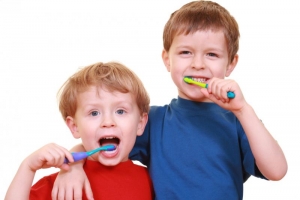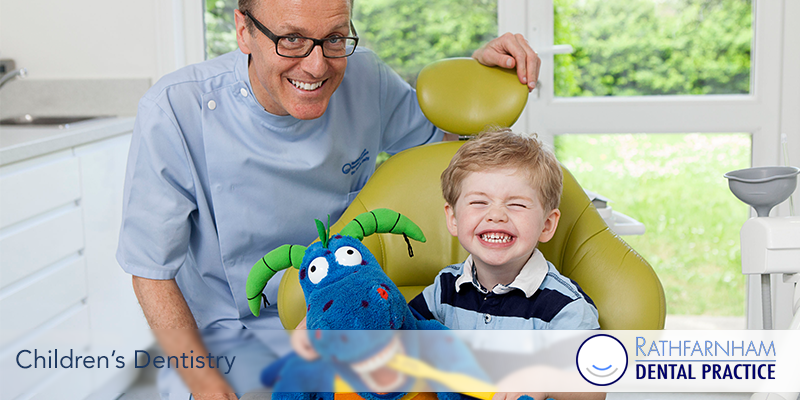Baby teeth, why do they matter?
Healthy baby teeth are important for developing healthy adult teeth and promoting your childs overall general well being. A painful or infected baby tooth from tooth decay can disturb your child’s sleep or affect their ability to chew. If a baby tooth needs to be removed as a result of tooth decay before it is lost naturally, it can lead to later crowding of adult teeth resulting in poor appearance of the teeth or a poor bite.
Our aim at Rathfarnham Dental Practice is to instruct parents and children on the prevention of dental disease to maintain healthy teeth. Early regular dental visits reinforce healthy habits that prevent tooth decay and encourage positive dental experiences that can last into adulthood. Regular prevention can avoid the need for expensive dental treatment in the future.
A child’s first dental visit can be at any age but it is important that good cleaning and tooth decay prevention starts as soon as teeth appear. Most children are happy to have a dental visit and even treatment at age 3. A visit at this age helps them get familiar with the surgery and staff which makes any later necessary treatment easier for them. It also helps establish good preventative regimes and identifies any disease or development issues. Early disease prevention will benefit your children for life.
Dental advice for toddlers (6 months-5 years)
- Parents should brush baby teeth as soon as they appear in the mouth with a soft toothbrush. A cloth on your finger can be easier with the very young.
- Adult toothpaste (1000ppm fluoride) can be used but just a small smear on the brush (grain of rice size)
- Bottles should be stopped at 12 months (only water or milk should be placed in the bottle, overnight sleeping with milk bottle against teeth can cause decay)
- For teething, teething rings or calpol can be used
- Continued use of a soother or thumb sucking can cause the upper front adult teeth to protrude. This can usually be stopped by the time they start school
Dental advice for children (6 years-teenage)
- Brush before breakfast and bed (twice per day) with a soft toothbrush and pea sized amount toothpaste(1400ppm fluoride) for 2 minutes
- It is recommended that parents supervise and check brushing up to 7 years of age
- Spit out toothpaste and avoid rinsing/swallowing
- Floss should be used age 12+. Mouthwash only needed when recommended by your dentist
- Eat well balanced diet (breakfast, lunch and dinner, two snacks) – avoid frequent snacking and high sugar foods
- Drink milk and water only – avoid fizzy drinks and excessive fruit juice/diluted drink consumption
- Treats should not be eaten everyday and ideally after a meal – avoid chewy/sticky foods that are retained in the mouth for a long time
Treatments for baby teeth and young adult teeth
 For protection against tooth decay, fissure sealants (protective covering) can be placed into the grooves on the biting surfaces of baby and adult teeth to aid toothbrushing and prevent build up of plaque bacteria/cavities. Fluoride varnish is a strengthening agent that can be applied to reverse early tooth decay changes to teeth.
For protection against tooth decay, fissure sealants (protective covering) can be placed into the grooves on the biting surfaces of baby and adult teeth to aid toothbrushing and prevent build up of plaque bacteria/cavities. Fluoride varnish is a strengthening agent that can be applied to reverse early tooth decay changes to teeth.
Tooth coloured fillings are used for small cavities in baby teeth. Larger cavities and infected baby teeth may require more extensive treatment which may include removal of inflamed or infected nerve tissue (pulp therapy), metal tooth coverings (stainless steel crown) or removal of the tooth. If a child is very young or unable to tolerate treatment, treatment with a specialist under sedation or general anaesthetic may be needed.
Sometimes teeth develop in the wrong alignment. This needs to be assessed regularly. Sometimes it is desirable to intervene at an appropriate age to correct wrongly aligned teeth orthodontically(with braces).
We recommend that children attend for a check up every three months to a year depending on the health of their mouth.

